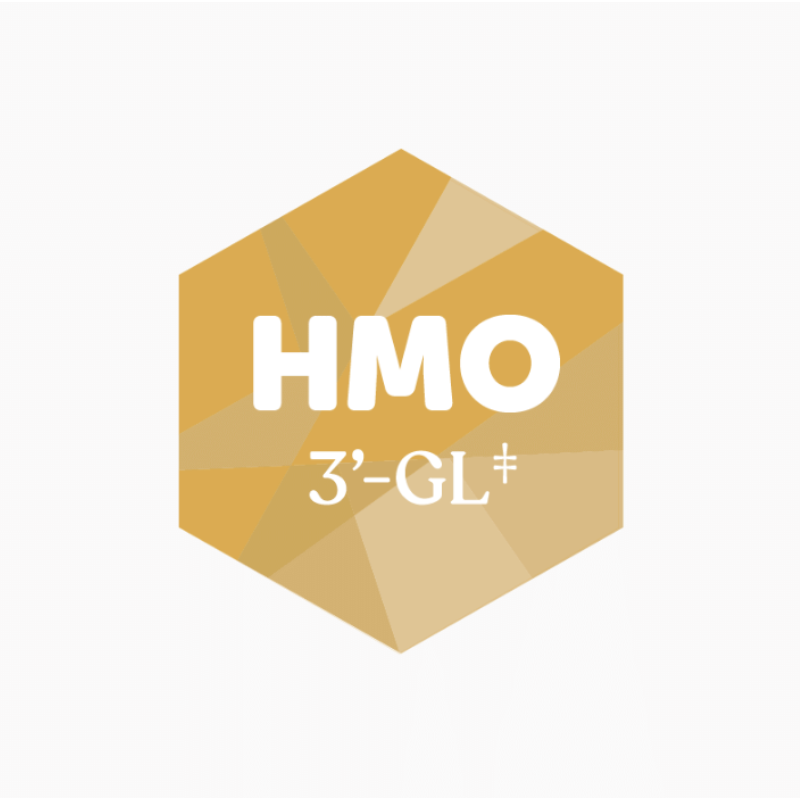Article Summary
- Human Milk Oligosaccharides (HMO) are important unique long chained carbohydrate compounds found in human breast milk.
- Research has confirmed various HMO structures play important roles in protecting gut epithelial cells and infant immunity.
- HMO presence in milk or formula is linked to growth of the healthy gut bacteria, Bifidobacterium.
- Kendamil believes HMOs are important and adds a prebiotic blend to its formula lines to provide naturally occurring HMO content.
- Kendamil is the only producer of organic formula with HMO content.
The Importance of Human Milk Oligosaccharides
Just as fats play an important role in the discussion of infant formula and breast milk, proper carbohydrate components (saccharides) must also be considered. Of particular importance is a group of specialised carbohydrates in human breast milk known as Human Milk Oligosaccharides, or HMOs. HMO factors within breast milk have been shown to be correlated with infant development of the mucosal immune system.
One study from Utrecht University in the Netherlands looked at the role of 3’-galactosyllactose, an HMO, and its role in infant immune development. The study revealed that 3’-galactosyllactose plays an important role in creating a protective barrier for infant epithelial cells and protecting infant gut health. (1) Another recent article in the journal Nutrients examined the role of HMO compounds in infant development and found anti-bacterial, anti-viral and anti-inflammatory effects for the child. (2) This can be crucial as a new infant is often reliant on the components found in natural breast milk for immune functioning during the first months of its life. While HMO compounds appear to protect the gut lining and immune system from threats, they also appear to provide a beneficial gut microflora growth similar to pre-biotics and probiotics. One such example came from a study showing infants with supplemented HMO compounds had higher gut bacteria diversity (a sign of strong health) and higher levels of the important strain, Bifidobacterium. (3)
Another extremely important nutrient in a newborn infant’s diet is colostrum. Colostrum contains a blend of HMOs including 3’-galactosyllactose, 4-galactosyllactose and 6’-galactosyllactose all of which are important to infant gut health and immune system functioning. This blend of HMOs was shown to exhibit potent anti-inflammatory effects by significantly reducing the expression of tumor necrosis factor alpha (TNF-ɑ), a known pro-inflammatory cytokine. (4) In addition to gut health, colostrum and its components have been shown to have a wider range healing effect such as cartilage and muscle growth and repair. (5)
Due to the factors discussed above, it is Kendamil’s belief that the addition of HMO factors to infant formula is of vital importance for infant immune system development. Kendamil includes HMOs in all of its formula lines, and is proud to be the first worldwide to offer an organic formula that includes HMOs. We believe HMOs should be part of the conversation in making current market formulas as close to breast milk as possible.
References
- Varasteh, S., et al. “Human milk oligosaccharide 3′-galactosyllactose can protect the intestinal barrier to challenges.” J. Pediatr. Gastroenterol. Nutr 68 (2019).
- Wiciński, Michał et al. “Human Milk Oligosaccharides: Health Benefits, Potential Applications in Infant Formulas, and Pharmacology.” Nutrients vol. 12,1 266. 20 Jan. 2020, doi:10.3390/nu12010266
- Steenhout P., Sperisen P., Martin F.-P., Sprenger N., Wernimont S., Pecquet S., Berger B. Term infant formula supplemented with human milk oligosaccharides (2′fucosyllactose and lacto-N-neotetraose) shifts stool microbiota and metabolic signatures closer to that of breastfed infants. J. Pediatr. Gastroenterol. Nutr. 2016;63:S55.
- Newburg DS, Ko JS, Leone S, Nanthakumar NN. Human Milk Oligosaccharides and Synthetic Galactosyloligosaccharides Contain 3′-, 4-, and 6′-Galactosyllactose and Attenuate Inflammation in Human T84, NCM-460, and H4 Cells and Intestinal Tissue Ex Vivo. J Nutr. 2016 Feb;146(2):358-67. doi: 10.3945/jn.115.220749. Epub 2015 Dec 23. PMID: 26701795; PMCID: PMC4725434.
- Uruakpa, Florence & Ismond, M.A.H & Akobundu, E.N.T. (2002). Colostrum and its benefits: A review. Nutrition Research. 22. 755–767. 10.1016/S0271-5317(02)00373-1.














